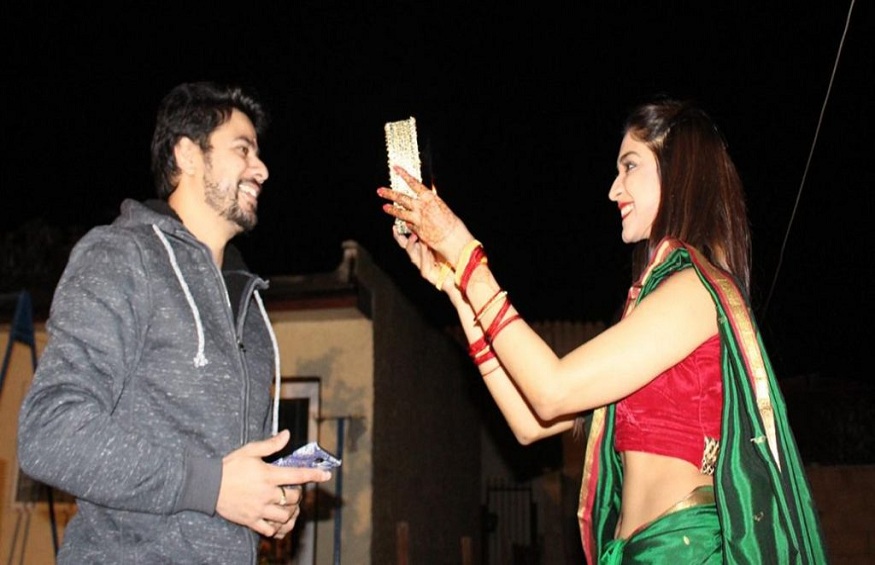India is home to a multitude of festivals, many of which revolve around worship of certain gods and goddesses. Then there are some festivals that have become synonymous with celebrating certain relationships. For example Raksha Bandhan celebrates the bond between a sister and brother.
Karwa Chauth is another Indian festival that is observed in many parts of India especially by Punjabi and north Indian households when married women dress up in their best Ethnic Indian Wear clothes. But is there more to this festival than just dressing up and fasting for your husband?
According to Hindu mythology, Karva Chauth was first observed by goddesses, cascaded down to the royal princess and in the recent history was observed by the military wives. While there is no single official source on origins of Karva Chauth and its genesis seems scattered amidst many different mythology chapters and historic eras, its ethos remains the same. For women to pray for the long life and protection of their husbands. Traditionally, it’s celebrated by married woman by observing a full day fast and breaking it when the moon appears on the horizon. When the moon makes that elusive appearance, the woman observing the fast waste no time in coming out of their house, grabbing a metallic sieve and watching their husband with the backdrop of the moon behind them through the sieve! Quite the surreal scene if you ask me. Then the husband fees the starving wife some water and or food to help her break her fast.
While this festival is important in North India, especially amongst housewives, it’s been losing relevance with urban, working women who find it hard to observe a stringent fast or perform elaborate ceremonies or do a “lite’ version of it. But as the feminist movement around the world gains prominence, is Karva Chauth, being faded under the garb of a sexist festival?
Many so called liberal media outlets have been quick to bill Karva Chauth as regressive and sexist, because the festival insinuates a women making a sacrifice for her husband’s long life. But these media fail to admit, that the festival too has evolved with the times. These days, in the families that this festival is celebrated both men and women observe the fast for each other. So what then is the problem?
According to many people, Karva Chauth like many other festivals gives the woman something to look forward to. Preparations can sometimes begin weeks in advance, and include looking forward to buy sarees, salwar suits, jewelry and beauty salon trips and doing up their house.
The festival also serves as a community building occasion for the women since women from nearby areas come together to perform the ceremonies and rituals and bond over a shared ritual.
But what resonates the most about Karva Chauth with most married women I’ve spoken to is that like other Indian festivals that bring an occasion to bond and socialise with their loved ones, Karwa Chauth too helps create a special bond between the husband and wife and in a way manifests a common activity to do together especially if both the husband and wife live a busy or divergent life.
In the light of all these reasons, it does seem unfair that an ancient and yet evolved festival like Karwa Chauth be dismissed as sexist or regressive, when really, it’s no better or worse than a Valentine’s day or a wedding anniversary. And god knows we love those.

